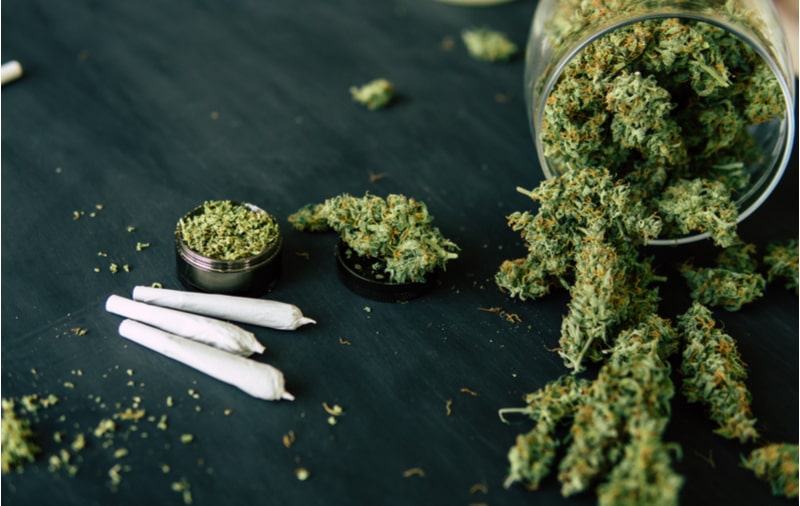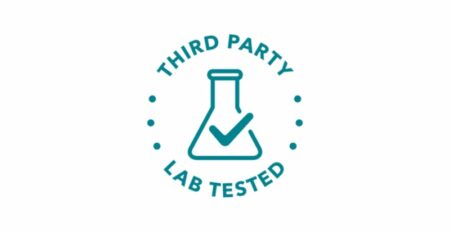What Drugs Should Not Be Taken With CBD
With cannabidiol becoming increasingly popular, it’s understandable that you may be wondering what drugs should not be taken with CBD. There are more than 100 different distinct cannabinoids present in the cannabis plant with hundreds of chemicals.
With CBD being more mainstream, it’s no wonder some are curious as to how CBD will interact with their medications. Currently, the research surrounding CBD and its benefits for human health are limited. However, the sparse research that is available has suggested CBD could interfere with other medical drugs.
The findings are certainly not conclusive – more research is needed on how drugs interact with CBD in the human body. However, many medical professionals have warned people that mixing CBD with particular medications is not advised. They have also stressed the importance of visiting medical professionals if you have a potential reaction.
About Metabolism
Before discussing how CBD interacts with medications and drugs, it is essential to learn about the body’s metabolism. You must know the following:
- How the metabolism works
- The systems that take part in CBD metabolism
- How the body metabolises CBD
- How CBD affects the Cytochrome P-450 system
What Does Metabolism Mean?
When many people think of metabolism, how slowly and quickly they lose or put on weight comes into their heads. They are not wrong; if you lose weight quickly, you must have a fast metabolism. On the other hand, if you find it difficult to lose weight, you may have a slow metabolism.
Science refers to this as the basal metabolic rate. In other words, the number of calories a person needs to sustain their regular bodily functions while at rest. In saying that, metabolism and basal metabolic rate do differ.
When you eat food, the liver breaks it down into small compounds so that the body can use it. A good example is carbohydrates that are broken down into fats, sugars, and proteins. After that, the body’s metabolism converts these compounds into metabolites.
The body uses these for cellular processes and as fuel. Additionally, it uses them as building blocks for a variety of tissues and systems.
How the Body Metabolises CBD
Similar to the food we eat, CBD has to go through a process. However, this process is known as drug metabolism. This refers to how quickly the body breaks down drugs, medications, and other various therapeutic compounds. It also determines how long these compounds remain in the body.
When CBD oil, edibles, tinctures, or capsules are consumed, they pass through the body’s digestive system. There they enter the bloodstream by the intestines. After that, the blood transports them to the liver.
Here, they enter the hepatic portal and then the liver. When CBD enters the liver, it is broken down by enzymes into metabolites. After that, it is transported throughout the body through the bloodstream.
About the Cytochrome p450 System
Breaking down compounds to create metabolites is a primary role of the cytochrome. However, another crucial role throughout this metabolic process is the excretion and detoxification of xenobiotics and various other toxic substances.
The system responsible for this is known as the cytochrome P450 system (CYP). It involves a particular group of enzymes that contain heme. The heme is used as a cofactor to transform fat-soluble compounds into water-soluble ones. This aids their use and absorption.
It has been said this system metabolises more than 60% of any drug consumed by the human body. Fascinatingly, medical professionals and researchers also use this system to calculate and understand drug dose effects. Also, doing this informs the side effects.
For example, say the liver processes just one therapeutic compound, and the system is healthy in general. The scientist can use the average time it takes for the CYP to process medication to determine dose information.
In saying that, particular substances can impact the way, this system processes certain compounds. For example, CBD could cause some medication to metabolise slower or quicker than they would normally.
The Cytochrome p450 System and CBD
As said previously, CBD can also interact with the cytochrome P450 system directly in the liver. Current research has found that CBD does this by interacting with the site involving the enzyme activity. It behaves as a competitive inhibitor here, dislodging its chemical rivals.
As a result, it impacts the metabolisation of other compounds by the CYP system. To what extent it does this is primarily based on several factors:
- The amount of CBD ingested
- The individual’s unique physiology
- The kind of CBD product consumed
These factors determine how tightly the CBD molecules affix to the metabolic enzyme’s active site. Tighter and increased bonds result in increased competitive inhibition. This means CBD could outcompete other drugs and medications in the stage of being metabolised by the CYP enzymes.
Therefore, CBD could deactivate some therapeutic compounds’ effects when they come through the CYP system. How effective it is in competing with other medications depends on several factors. However, primarily how much CBD has entered the bloodstream.
If the amount is minimal, there should not be a noticeable difference in the CYP activity. Also, most of the medication will be metabolised. However, if a large amount of CBD is consumed, it will affix to more of the site’s enzyme activity. As a result, this could result in other medications not being metabolised.
Why It’s Important to Know How CBD Competes In The CYP
When CBD affects the CYP system in this way, it transforms how other medications and drugs are metabolised. Also, it could prevent many drugs from being metabolised. If this occurs, it results in increased levels of different drug compounds being present in the human body.
At the minimum, unwanted side effects could occur as a result of these elevated concentrations. These side effects could include a suppressed immune system or a higher risk of bleeding. Alternatively, it could potentially cause a serious overdose.
What Drugs Should Not Be Taken With CBD?
Research has found that CBD could interact negatively with other medications and drugs. Below are some of the ways CBD interacts with medications and drugs.
It could change how your body processes specific medication
CBD has gained momentum over the last number of years for its ability to help a range of health concerns. While studies regarding how effective it is as a supplement continue, a lot of people are giving it a go.
Recent research has found it is a safe supplement for human consumption with very few side effects. However, it has also been discovered that CBD can interact negatively with certain drugs and medications. This concern is more so to do with how the human body metabolises substances.
Before purchasing and consuming CBD, it is essential to speak with a medical professional. Speak with them about the medication you are currently taking and how this will interact with CBD. Share with them what vitamin supplements you take, prescription, and over-the-counter medications you are using.
How to Know What Drugs Should Not Be Taken With CBD
Below are some tips to help you determine whether you can use CBD simultaneously with your medications or drugs.
Look For a Grapefruit Warning When Asking What Drugs Should Not Be Taken With CBD
Studies surrounding how CBD interacts with drugs and medication are still being conducted. In the meantime, the one guideline consumers have in this area is the grapefruit warning. If your medicine has a grapefruit warning on the label, you should steer clear of CBD.
While grapefruit has excellent benefits for human health, it also can interfere with certain medicines. As a result, it can alter their effects. For this reason, the grapefruit warning was created and is now printed on many common medications.
The warning’s purpose is to inform consumers that they should not consume grapefruit while taking the medication. According to the National Health Service (NHS), it can increase the amount of medicine present in your blood.
As a result, this can increase the likelihood of you experiencing side effects. It can also transform the impact in which medicine has.
Some of the medicines impacted by grapefruit include:
- Calcium channel blockers
- Statins
- Entocort
- Cytotoxic medicines
- And more
The reason grapefruit interacts with these medications is because it contains the chemicals furanocoumarins that inhibit CYP3A4. This is similar to CBD and can result in slowing the metabolisation of medicine. For that reason, be sure to consult your doctor before consuming CBD.
This will help you to determine whether or not it will cause any issue.
What Does Current Research Say About What Drugs Should Not Be Taken With CBD?
Studies are looking to discover how CBD interacts with a range of drugs and medications. There have been studies conducted on animals for particular drugs and medicines. However, in most cases, scientists are trying to find out how those results relate to humans.
There have been some small trials conducted. One study involved 25 children dealing with epilepsy. They gave the children CBD and clobazam to see how the drugs interact with one another.
Those conducting the research discovered higher levels of clobazam in the children’s systems. They have deemed taking this medication with CBD safe. However, they recommend that people monitor their medication levels while consuming both simultaneously.
Another research study looked at children and adults taking AEDs. They gave them CBD and increased the doses every two weeks. They monitored their serum levels of the AEDs over time.
Although the levels were maintained within the acceptable therapeutic range, two other medications had serum levels beyond this range. Current research has found that CBD could potentially affect your medication levels, even if you are consuming the prescribed dose. More research is needed to determine how CBD and various medications interact.
It is crucial to discover how severe the interactions of CBD are with other medications. Also, to devise recommendations for taking medication with CBD simultaneously without experiencing side effects.
Can I Take Ibuprofen While Using CBD?
Ibuprofen is a medication available over the counter that can help reduce inflammation and pain. The only risks with taking this medication are shortness of breath, dizziness, and nausea. Taking CBD with ibuprofen could increase the medicine’s strength and how long it remains in the body.
As a result, this could lead to you experiencing the potential side effects. Currently, there is no human research regarding how CBD interacts with ibuprofen. However, some animal studies have suggested taking CBD and ibuprofen together could work in synergy to alleviate pain.
However, given that research is somewhat limited, you should still consult with your doctor.
Can I Take CBD With My Thyroid Medication?
Thyroid medication treats thyroid disorders, whether that be an overactive thyroid or an underactive one. Various medications help to treat these disorders through numerous pathways in the human body. Side effects of thyroid medications include anxiety, vomiting, headaches, and chest pain.
Anti-thyroid medication side effects can also include fever, aches, itching, rashes, and headaches. Similar to ibuprofen, there is very little research on how thyroid medication and CBD interact. Given that, it is best to speak to your doctor about CBD if you take thyroid medicine.
Can I Take CBD With Xanax?
Xanax is a medication prescribed to those dealing with depression, anxiety, and panic disorders. The common side effects of Xanax are reduced coordination, loss of memory, and drowsiness. The liver breaks down Xanax using an enzyme known as CYP34A.
CBD inhibits this. Therefore, consuming CBD may lengthen the amount of time Xanax is in the human body. As a result, it could increase the likelihood or prolong unwanted side effects.
No research studies have documented how CBD and Xanax interact. For that reason, if you want to consume CBD alongside your Xanax medication, you should speak with medical professionals.
Medication and Drugs You Should Not Take With CBD
Research has noted the effects of CBD on liver function and enzymes which metabolise many medications. They are relevant when thinking about whether or not to take CBD with particular drugs. CBD behaves the same as metabolites such as grapefruit.
Given that, most of the drugs carrying the grapefruit warning label could have similar side effects when taken with CBD. These drug classifications consist of many existing prescriptions like haloperidol, antihistamines, benzodiazepines, statins, cyclosporine, warfarin, sildenafil, antiretrovirals.
In addition to other various medications metabolised by CYP2D6 and CYP34A.
Side Effects and Safety Recommendations
Ensure your doctor knows you are taking your medication and CBD at the same time. That way, they can help you do so safely. This is even the case if your medicine has the grapefruit warning.
If needed, your doctor could look at the plasma serum levels of the medicine you take. They could also decide to monitor your liver functioning. Try to pay attention to changes in your body if you are taking CBD with medication. This will help you determine how taking the two is affecting you.
Common side effects from new medication include sedation, nausea, and drowsiness. The common side effects of CBD are usually diarrhoea, fatigue, appetite, and weight changes. They are not severe side effects.
However, it is essential to listen to your body and not have these issues affect your physical or mental health.
Why You Should Speak to Your Doctor Before Taking CBD With Your Medication
The list of medications that CBD could interact with is not entirely known. Interactions could result in side effects, and it is essential to err on the side of caution. Given that, it’s crucial to speak with your doctor if you are taking medication and trying out CBD.
They will have the professional knowledge and expertise to guide and advise you regarding possible CBD-drug interactions. Additionally, they could monitor the side effects of the medications you are on and the CBD. A doctor can help you to adjust your doses so that you can take them simultaneously.
Key Takeaways on What Drugs Should Not Be Taken With CBD
CBD has grown in immense popularity. This is because many studies have backed its use for aches and pains, anxiety, stress and frustration, and enhanced sleep. With that, more and more people want to give CBD a go.
A question on many people’s minds when considering CBD is – what drugs should not be taken with CBD, and will it interact with my regular medication? To what extent CBD affects other drugs is challenging to say.
Current research has suggested that CBD could affect how the body metabolises other drugs. In other words, CBD could affect how long the drug remains in the body and how it is broken down. As a result, taking CBD with these drugs could result in unwanted side effects.
If unsure about whether you can take CBD with your medication, be sure to consult your doctor. They will be able to advise you regarding how to take CBD alongside your medicine.





